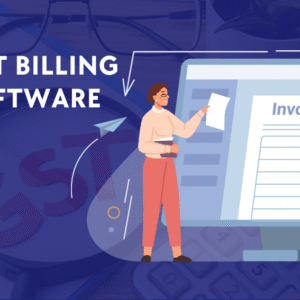You’ve probably heard the words sustainable living, renewable resources, eco-friendly, and other variations of these terms. None of these phrases are new, but many of them are becoming buzzwords because there is an increased awareness of what we need to do to protect and repair our environment. You’re going to start hearing them in a lot of everyday conversations.
This article will help provide you a better understanding of what is meant when someone refers to a renewable resource or a renewable material.
Definition of a renewable material
Most of the time, people immediately think of energy sources when they hear the term renewable. While they aren’t wrong, the term “renewable material” refers to any material or resource that doesn’t run out and that can be manufactured in a timely manner. So while the term does indeed refer to energy sources, it also refers to other materials that can be used repeatedly and replaced naturally.
Why renewable materials matter
Renewable materials matter because they’re sustainable! They do not deplete natural resources. There are a number of nonrenewable materials (such as coal, oil, and gas) that run the risk of being depleted. Plus, many of these nonrenewable materials are harmful to the environment. Renewable materials can be replenished and are generally better for the environment.
Renewable energy sources
Wood was the most popular source for heating, lighting, and cooking until the mid-1800s, at which point fossil fuels increased in popularity. Now, renewable energy sources are increasing in popularity.
If you’ve ever seen wind turbines in fields or solar panels on roofs, you’ve seen a renewable energy source. Most renewable energy sources produce little to no global warming emissions. There are a number of other benefits to renewable energy sources, including the fact that they can be more cost-efficient than fossil fuels.
Renewable energy sources include wind power, solar power, geothermal energy, biomass electricity, hydroelectric power, and hydrokinetic energy.
Each of these sources has a number of benefits, however, they each come with some limitations as well. For example, the benefit of solar power is that it doesn’t release harmful gasses into the atmosphere. A limitation of solar power is that sunlight isn’t a constant source of energy – factors such as weather conditions or time of year could limit the amount of sunlight that can be collected.
Natural renewable materials
There are so many natural materials out there that can be safely harvested without hurting the environment and then regrown. One of the most popular renewable materials is bamboo. This is because bamboo is fast growing, easy to transport, and has strong natural fibers. It can be used in construction materials, textiles, furniture, musical instruments, and more. Bamboo is one of the fastest growing plants on the earth, so it is easy to regrow after it is chopped down.
Other popular renewable materials include cork, straw, cotton, natural rubber, and wood. Wood is a renewable material as long as the trees are replanted at the same rate they’re cut down.
Metal as a renewable material
Renewable materials like aluminium and steel can be used as a construction material. Metal materials tend to be long-lasting because they’re strong enough to withstand natural disasters and resistant to wear caused by termites, fire, and water. There is some debate on whether metal can count as a renewable material. While there is no doubt that it is sustainable, some claim that it cannot be considered a renewable material because of the amount of time and energy it takes to produce these materials. However, others claim that because these materials are naturally occurring and can essentially be used forever (aluminum and steel can both be melted down and reused), they are considered renewable.
Plastic as a renewable material
There is also some debate on whether plastic can be considered a renewable material. Some companies, such as Coca Cola, are claiming that the plastic they use in their packaging is a renewable material. Properly recycled plastic can be reused over and over, which makes is a sustainable material. However, just because a material is sustainable doesn’t mean it is renewable. And whether or not you consider plastic a renewable material, there is no denying that plastic that isn’t disposed of properly is having a negative impact on the environment.
Conclusion
Renewable materials are being used in a variety of industries, including the energy industry, construction industry, and textile industry. There is still some debate on what materials can and cannot be considered renewable, but generally, renewable materials are naturally occurring and have a positive environmental impact.






